2023 Inductees
2023 Scholars
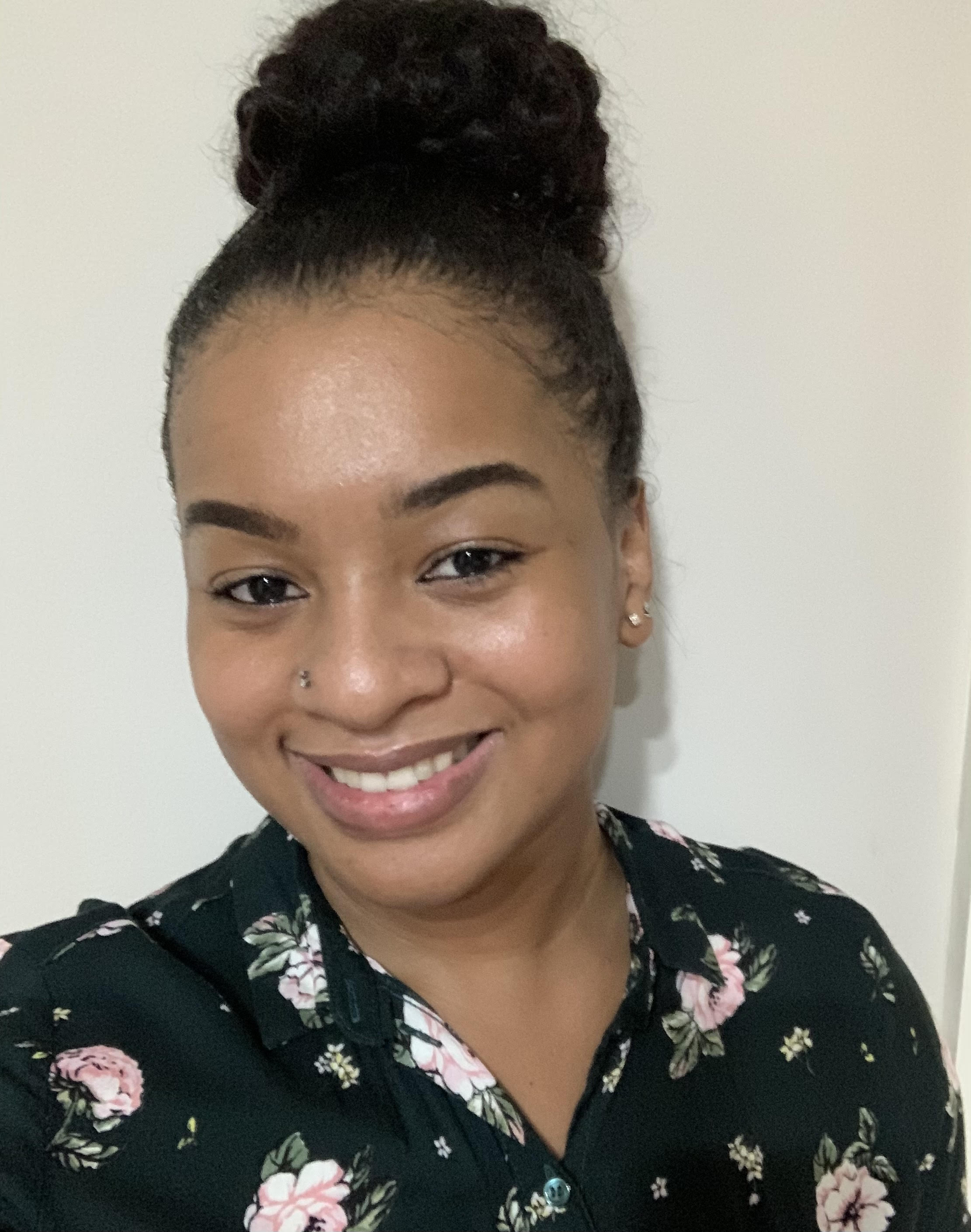
Karah Alexander is a candidate for the Ph.D. in nursing at Emory University. Her research examines health literacy and medical discrimination in Black dementia caregivers and explores literacy as a factor of health inequities plaguing underserved populations. She is very passionate about intervention research, specifically assessing the efficacy of the novel, Caregiving While Black Course, which aims to develop caregiving mastery in Black dementia caregivers, and where she developed content on the importance of being a health literate caregiver.
Karah co-leads an improvement project at Emory Healthcare, developing patient education that meets the health literacy needs of people in surrounding communities, and is a subject matter expert in literacy for the Atlanta Region Community Health Workforce Advancement Program (ARCHWAy). Karah earned her Master’s in Public Health from Georgia State University with a focus on health promotion and behavior and is currently finishing her graduate certificate in health literacy at Georgia State’s College of Education & Human Development.
Karah is also a proud alumna of Spelman College where she served as a UPS Scholar, dedicating 10 hours/per week to Fickette Elementary School in Atlanta. Currently, Karah is a graduate mentor in the Emory Pipeline Collaborative Program (EPiC) and works with Atlanta public high school students weekly to prepare for entry into health professions.
Karah aspires to continue educating pre-licensure, as well as medical students in applying health literacy principles to clinical practice, and return to Spelman College to join the legacy of preparing Black women scholars to help change the world.
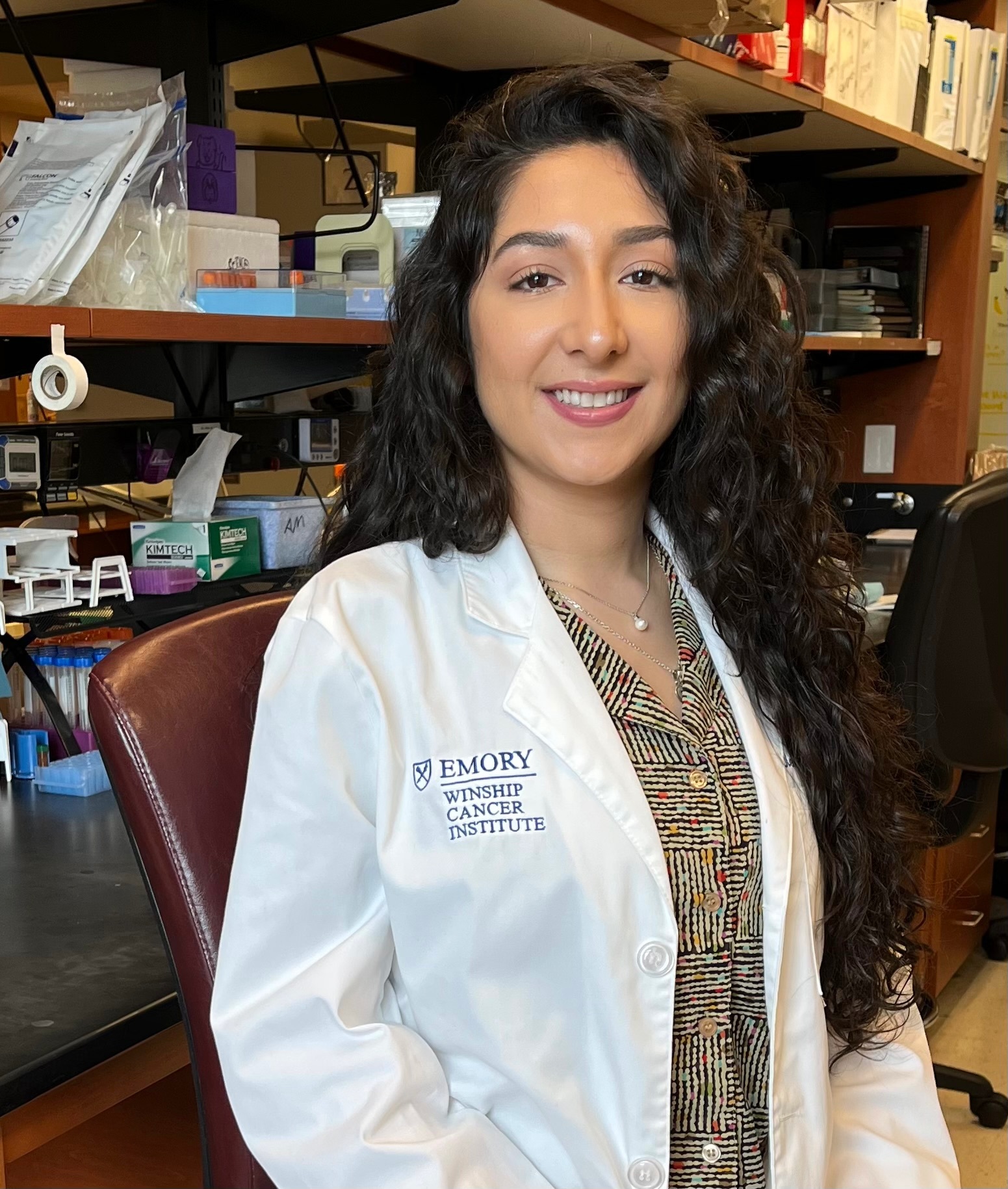
Veronica Canarte is a Ph.D. candidate in the Cancer Biology Graduate Program at Emory University studying the role of CD28 and CD86 signaling in the survival of multiple myeloma. As an incoming graduate student, Veronica was awarded the Centennial Scholars Fellowship as an application who demonstrated outstanding academic achievement and who will contribute to the development of a richly diverse student body. Before joining Emory University, Veronica spent two years in the NIH-funded post-baccalaureate research program (PREP) at Tufts University School of Medicine studying Human papillomavirus-associated cervical cancers.
In 2018, Veronica graduated from Towson University with a B.S. in Cell and Molecular Biology where she participated in various outreach organizations while on campus. She currently resides as the Division Student Advisory Council (DSAC) representative for the Cancer Biology program advocating on behalf of students and working with the administration to address student concerns. She is also an executive member of the Latinx Graduate Student Association where she spends time fostering a community for Latinx students across Emory University’s graduate programs.
Veronica strongly believes in contextualizing social and political ramifications with some of the health consequences we see in the cancer biology field today. Ultimately, she aspires to redistribute her access to the academy and extend opportunities that contribute to prosperity and restoration of health standards in minority communities.
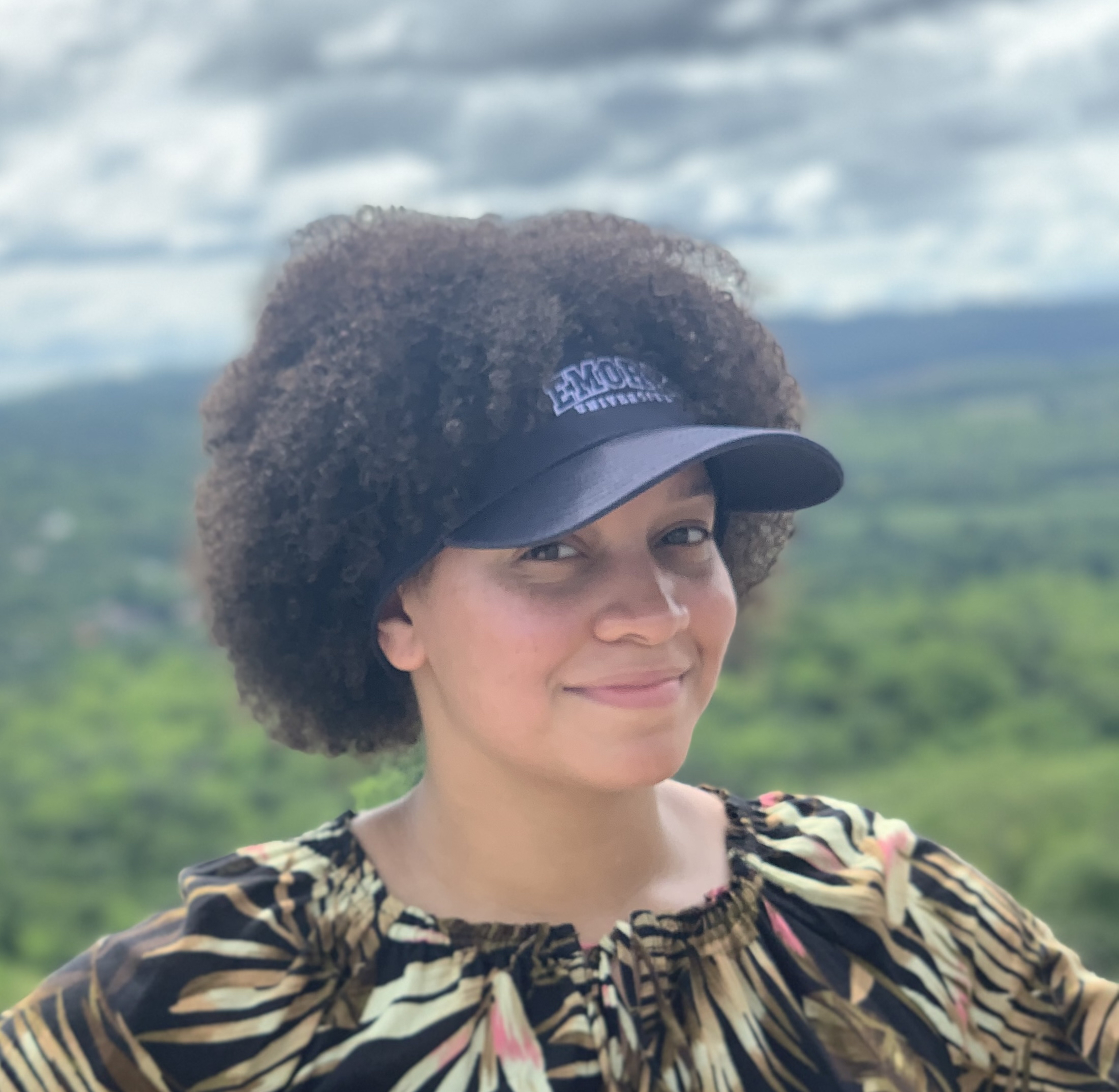
Jasmine Marie Hope, Ph.D. is a Postdoctoral Fellow in the Department of Rehabilitation of the School of Medicine at Emory University. Her research focuses on the underlying neurophysiological mechanisms of gait in persons with stroke. Dr. Hope has been elected as a community leader in the City of Atlanta where she advocates for diverse and historic communities. Additionally, she earned a Doctor of Philosophy in Neuroscience and a Bachelor of Science in Neuroscience and Behavioral Biology from Emory University. She has been awarded funding from the National Institutes of Health throughout her research training, including a National Research Service Award.
Dr. Hope enjoys participating in outreach opportunities in which she teaches learners young and old about neuroanatomy, cognition, and neurorehabilitation. She has assisted in the organization of Brain Awareness Month as a member of the Atlanta Chapter of the Society for Neuroscience and volunteered at the Atlanta Science Festival. She has also assisted her neighborhood in the creation of an after-school film club to assist local students in gaining literacy and comprehension skills through the art of short film creation.
Jasmine aspires to become an academic research scientist where she can advance the field of neurorehabilitation and advocate for diverse and equitable academic institutions.
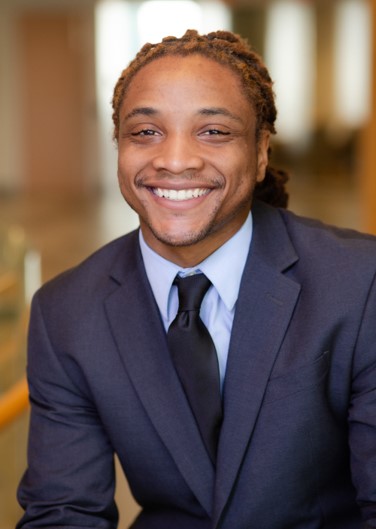
Stacey K. Jones is a candidate for the Ph.D. in Chemistry at Emory University. His research focuses on the structural and mechanical characterization of B12-dependent radical SAM enzymes due to their implication in the biosynthesis of health-relevant antibiotics. Stacey has been recognized as a Centennial Fellow, Emory Diversifying Graduate Education (EDGE) Fellow, and National Science Foundation Graduate Research Fellowship Program (NSF-GRFP) awardee.
Stacey also received a Bachelor of Science in Chemistry from Georgia State University, where he received the Chemistry Award for Excellence in Undergraduate Work. At Emory University, he served as the President of the National Organization for the Professional Advancement of Black Chemists and Chemical Engineers (NOBCChE). Stacey's passion is expressed through his commitment to community building across the broader scientific community. He is an active participant in the Laney Graduate School Black Men at Laney United in Excellence (LGS-BLUE) initiative that connects and promotes community among Black and brown, male-identifying graduate students through various social, academic, and professional activities.
Ultimately, Stacey aspires to work at the intersection of business and science and foster community through more mentorship programs.
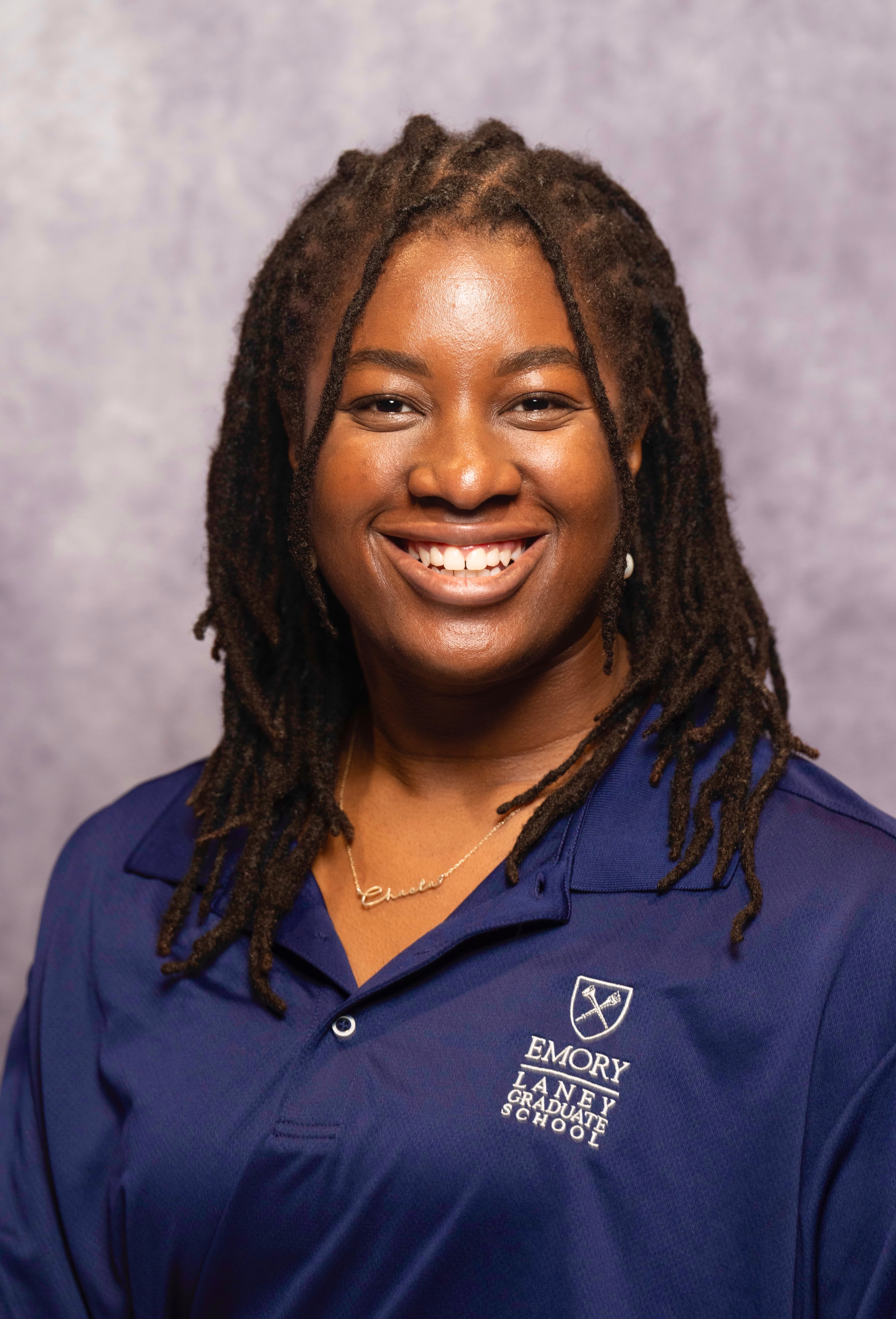
Chaela Nutor is a candidate for the Ph.D. in Clinical Psychology at Emory University where she is the recipient of the Centennial Scholar Fellowship. With her research, she aims to better understand the environmental risk factors that lead to disparities in child development. Chaela uses her research to advocate for the inclusion of typically underrepresented groups.Chaela especially values teaching and mentoring as she believes that the ability to influence and inspire young minds is a responsibility that shouldn't be taken lightly.
Chaela has been recognized as an ambassador for Laney Emory Diversifying Graduate Education (EDGE), where she helps other students take advantage of the benefits of the community by planning and executing social events and disseminating information about opportunities, scholarships, and fellowships to underrepresented graduate students. Chaela is also heavily involved in recruiting for both EDGE and the Emory Psychology Department.
Chaela also leads the Graduate Students in Psychology and Neuroscience (GSPN) and the Justice, Equity, Diversity & Inclusion (JEDI) committees for the psychology department. Long term, Chaela would like to continue teaching undergraduates and conducting research as a tenured professor at an academic institution, as well as continuing her outreach efforts to mentor and teach beyond the confines of the academy.
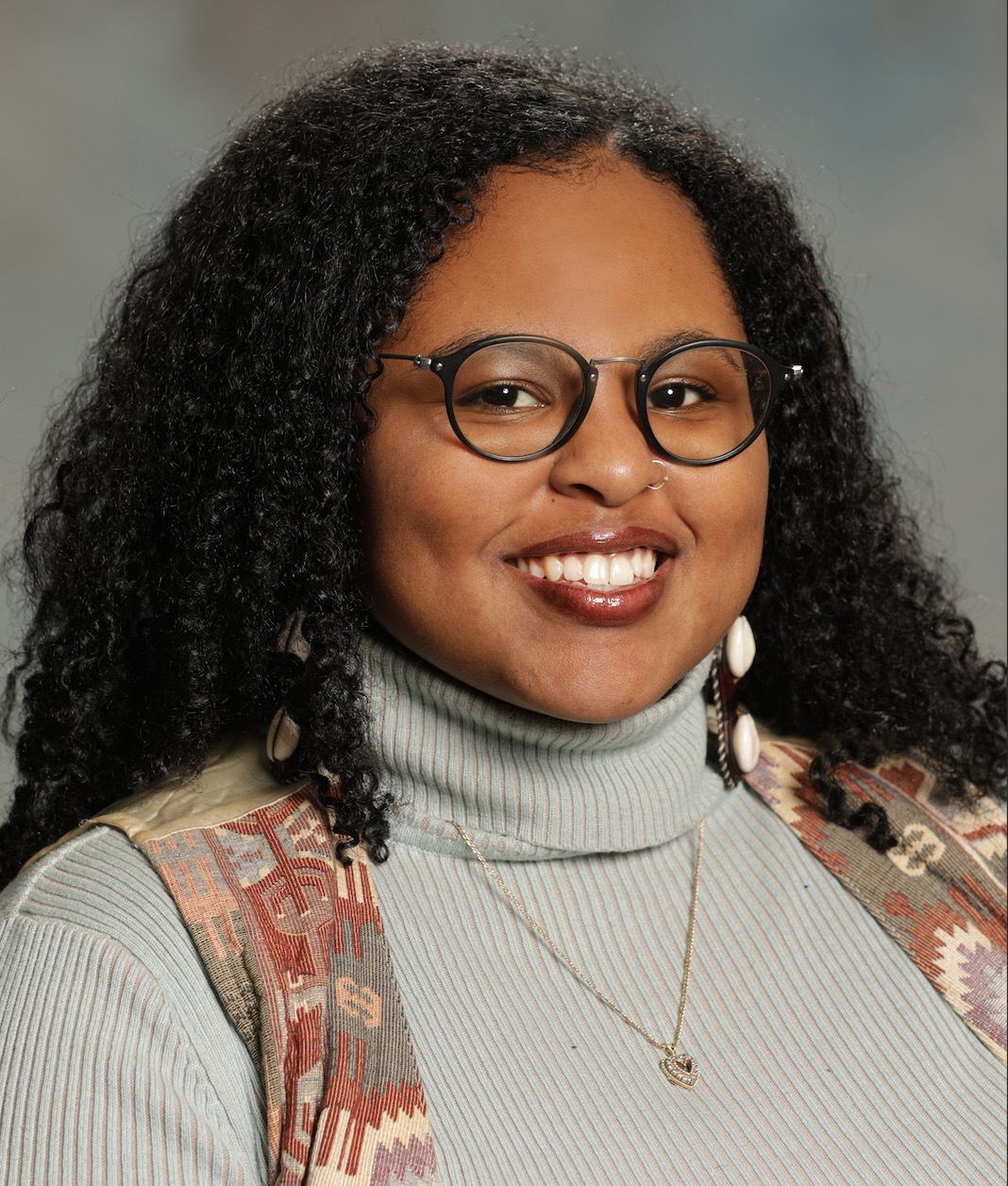
Yemko Pryor (she/they) is a Ph.D. candidate at Emory University in the Genetics and Molecular Biology doctoral program. At Emory, Yemko works in an Ancient DNA lab where her dissertation research is focused on mapping the evolutionary histories of Indigenous Peoples in the Americas.
In 2021, Yemko was awarded both the Ford Foundation Predoctoral Fellowship and the Nation Science Foundation Graduate Research Fellowship (NSF-GRFP). In 2022, they were awarded the Emory Laney Graduate School Emory Diversifying Graduate Education (EDGE) Fellowship and now work with Laney's Associate Dean of Diversity Equity and Inclusion (DEI) to maintain programming centering diverse graduate students on Emory's campus. In 2018, Yemko gained a B.A. in Biology and Africana Studies from Oberlin College, graduating with High Honors in Africana Studies. Following graduation, she worked as a post-baccalaureate researcher in Human Genetics at the University of Chicago in the NIH Post-Baccalaureate Research Program (PREP).
Yemko has always been very involved in university service and community engagement. They have volunteered with Emory's Office of LGBT Life since January 2020 and currently facilitate the Queer Grads Community Group through the office. Yemko enjoys mentoring and building community with other graduate students, by helping students access campus recourses or reviewing fellowship and grant applications. Her future goal is to continue leading DEI-centered initiatives in higher education.
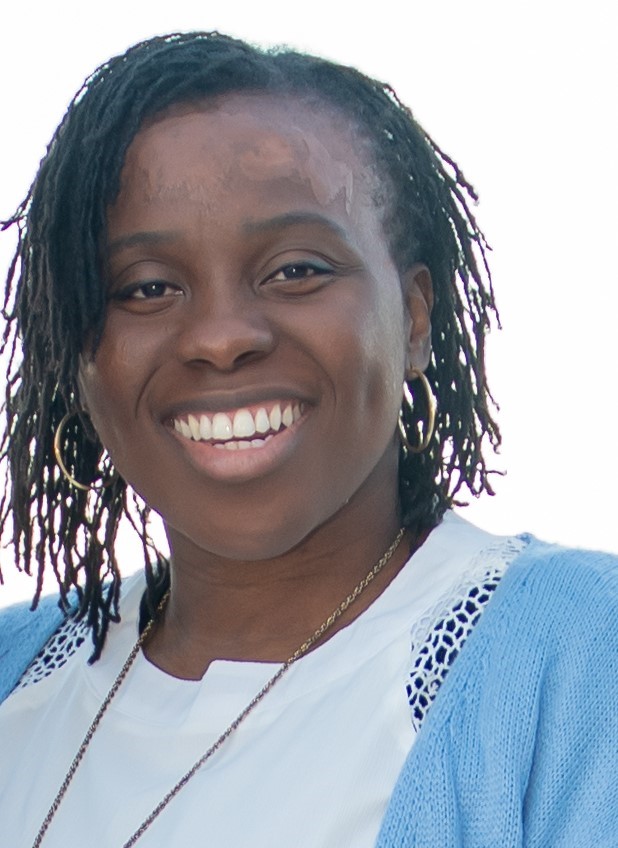
Rebecca O. Shasanmi Ellis is a candidate for the Ph.D. in nursing at Emory University. Her research focuses on the intersection of nursing workforce development, mental health, and structural determinants of health.
Rebecca has been recognized as a Halle Global Institute Graduate Research Fellow, Centennial Scholar Fellow, Emory Diversifying Grad Education Ambassador, Sigma Theta Tau International Nursing Honor Society inductee, and received the Top Ph.D. Student Award from the International Philosophy of Nursing Society. She received a Master of Public Health from Morehouse School of Medicine, and a Bachelor of Science in Nursing from George Washington University, where she was a Robert Wood Johnson Foundation New Careers in Nursing Scholar.
Rebecca currently provides care as a registered nurse at SisterLove, Inc. (the first Black women's HIV org in the south) and CAPN Clinics (free clinics operating in homeless shelters) in women's health and mental health. As a mental health triage nurse and Community Resiliency Model teacher she has taught nurses and other clinical/public health providers about managing their own psychological symptoms and sharing these resiliency skills for more effective and patient-centered care in the facility and community-based care.
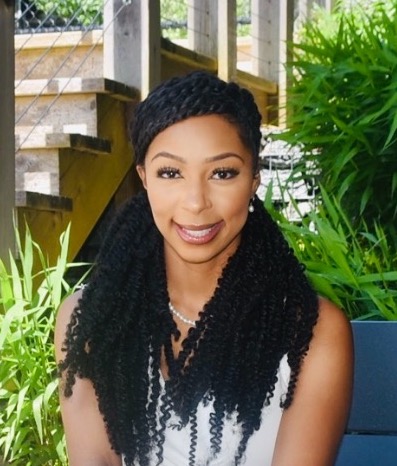
Morinade J. Stevenson is a candidate for the Ph.D. in philosophy with an area of specialization in black feminism at Emory University. Her research focuses on black feminist representations tracing the figure of the black mater(nal) in literature by using a genealogical method that emphasizes discontinuity and contingency. This method invites a method of reading that disrupts the assumptive logic that informs both the reading of the figural representations of black women as well as the very mechanisms through which we interpret and understand the world.
Morinade is a Minorities and Philosophy liaison and has completed a term on the national American Philosophical Association where she contributed to Diversity, Equity, and Inclusion policy initiatives with a team of graduate students. Morinade has been a devoted advocate for increasing diversity within institutions of higher ranking through organizing and community outreach.
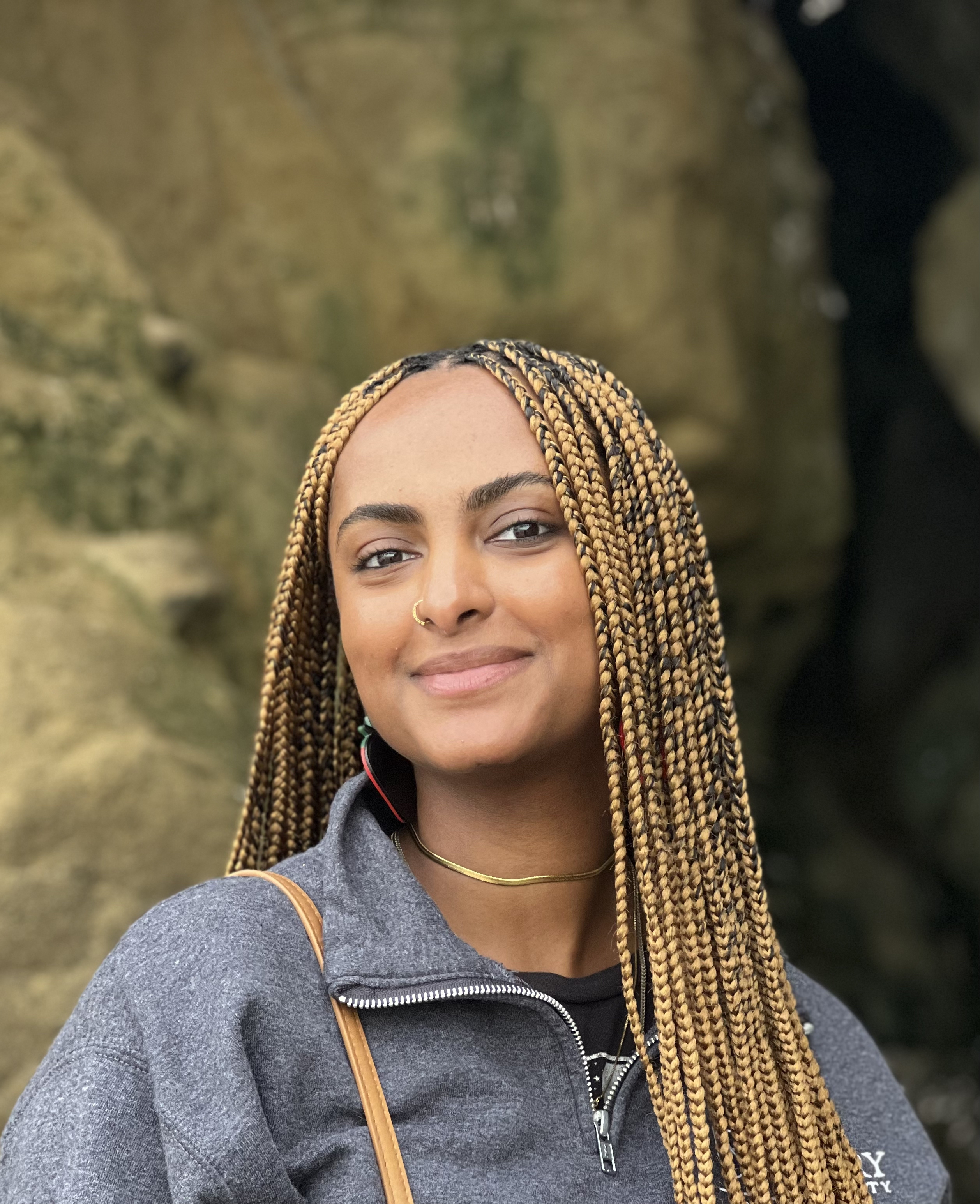
Kedamawit Tilahun is a candidate for the Ph.D. in Genetics and Molecular Biology (GMB) at Emory University. She earned her bachelor's degree in integrated neurobiology and physiology at North Carolina State University and conducted research that involved studying the role of endocrine disruptors on reproductive capacity and sexual development in Japanese Medaka. From her work, she earned her first co-authorship in a publication.
After graduating, Kedamawit worked at the Duke Human Vaccine Institute (DHVI) as a research technician and analyst. She was able to identify neutralizing monoclonal antibodies from vaccinated Rhesus macaques that recapitulated characteristics of monoclonal antibodies from naturally infected individuals. Her time at DHVI led to two co-authorships in Cell reports and Science Translational Medicine. Her current research focuses on elucidating the mechanisms of TMEM106B neurotoxicity using in vitro and in vivo methods.
Kedamawit was awarded the Centennial Scholar Award from Laney Graduate School as well as the NIH T32 pre-doctoral award. Throughout her time at Emory, Kedamawit has been involved in leadership roles that contribute to diversity and inclusion in the academy by serving as the executive and DEI committee representative in the GMB community.
Kedamawit has been active in outreach programs outside of Emory, she has participated in Science ATL's SPSP program where she partners up with a teacher at a local school to bring engaging and enriching science lessons to the classroom. Kedamawit continues to provide service to her school and outside community by participating in teaching high schoolers as well as Emory undergraduates.
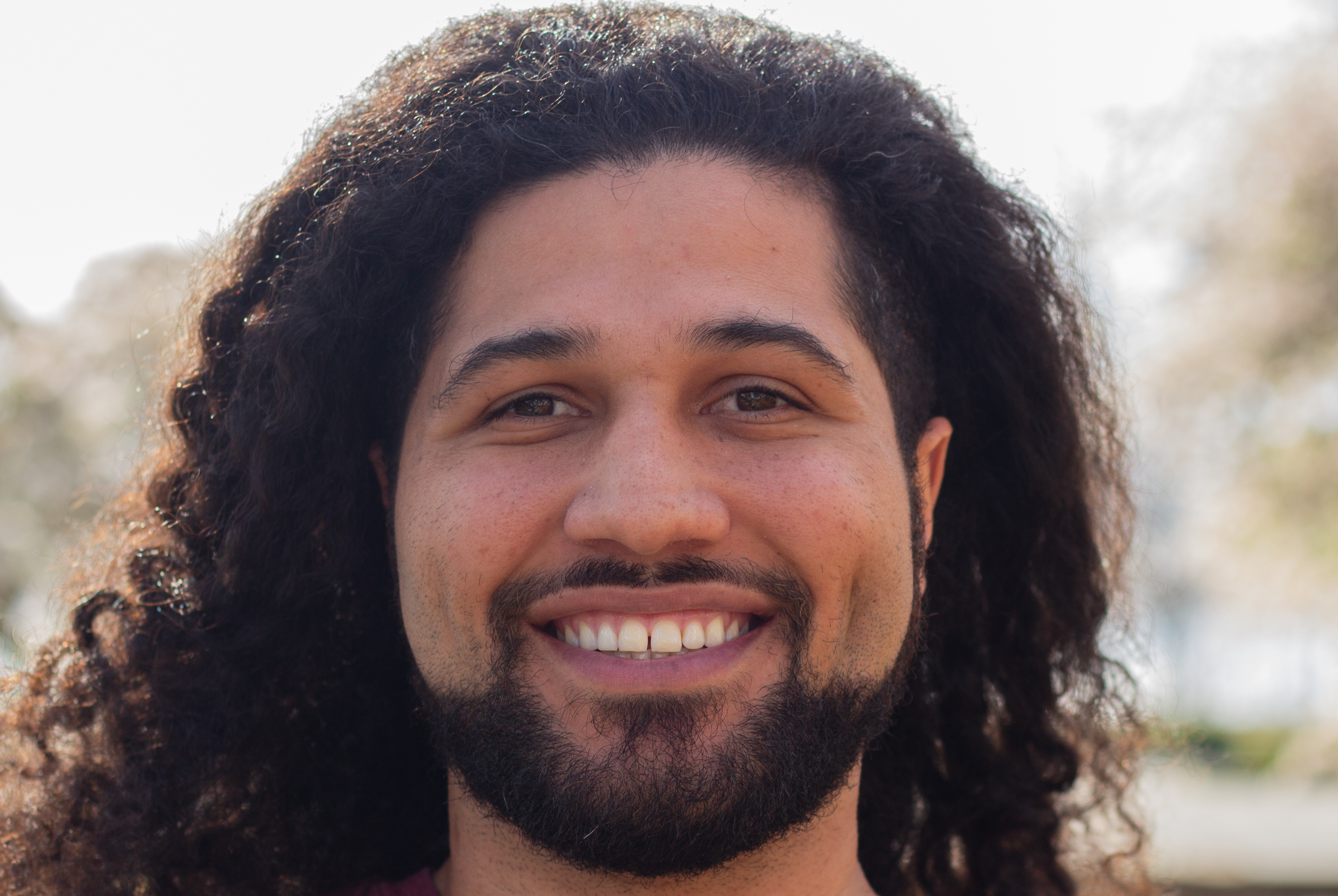
Keenan Wiggins is a Ph.D. candidate at Emory University in the program of genetics and molecular biology. His research focuses on the epigenetic and molecular regulation of memory B cells that are part of the adaptive immune system. Keenan completed his Bachelor of Science in biology at Indian River State College, FL where for two years he volunteered for earth day.
Keenan has received the Santander Scholarship at the University of Birmingham, UK where he received his Master of Science in biotechnology. At Emory, Keenan teaches biology labs to share his passion with the upcoming undergraduates. He has also been volunteering for the black graduate student association and GDBBS involved in volunteerism at Emory. As a research scientist, Keenan wants to further the field of how memory B cells are programmed after natural infections compared to vaccines. He believes this is a huge area in immunology that is poorly understood and with his expertise in molecular biology techniques, Keenan is confident that he can lead the way for this public health issue.
Ultimately, Keenan would like to give back to underrepresented communities by collaborating on health issues that disproportionally affect underrepresented communities.